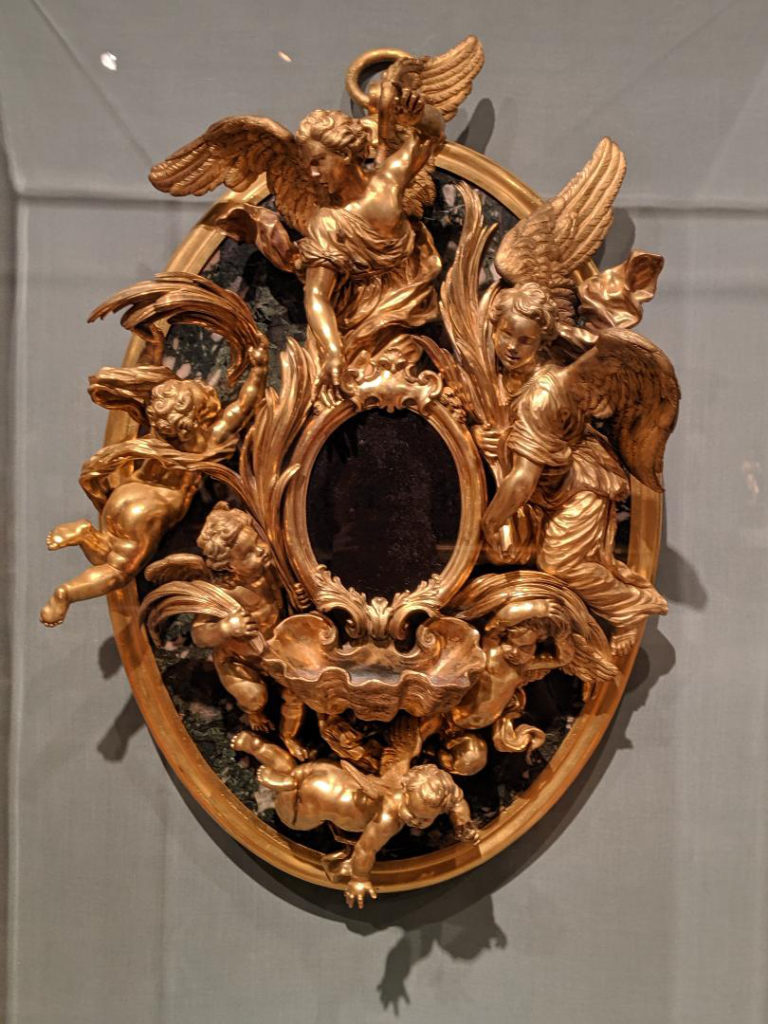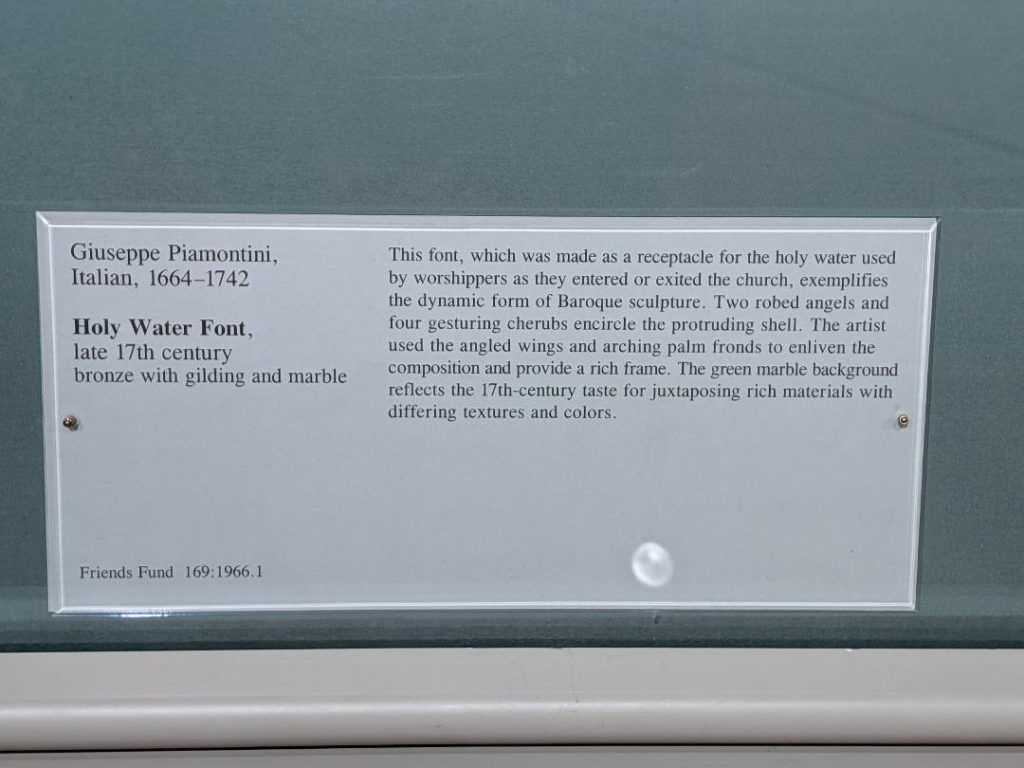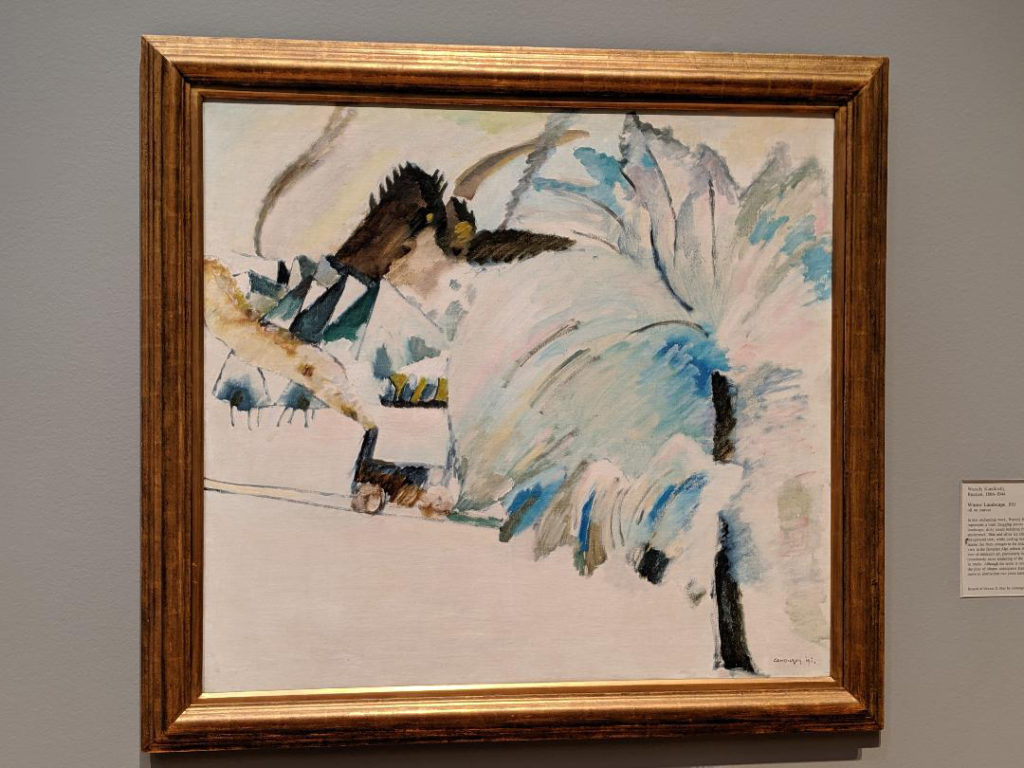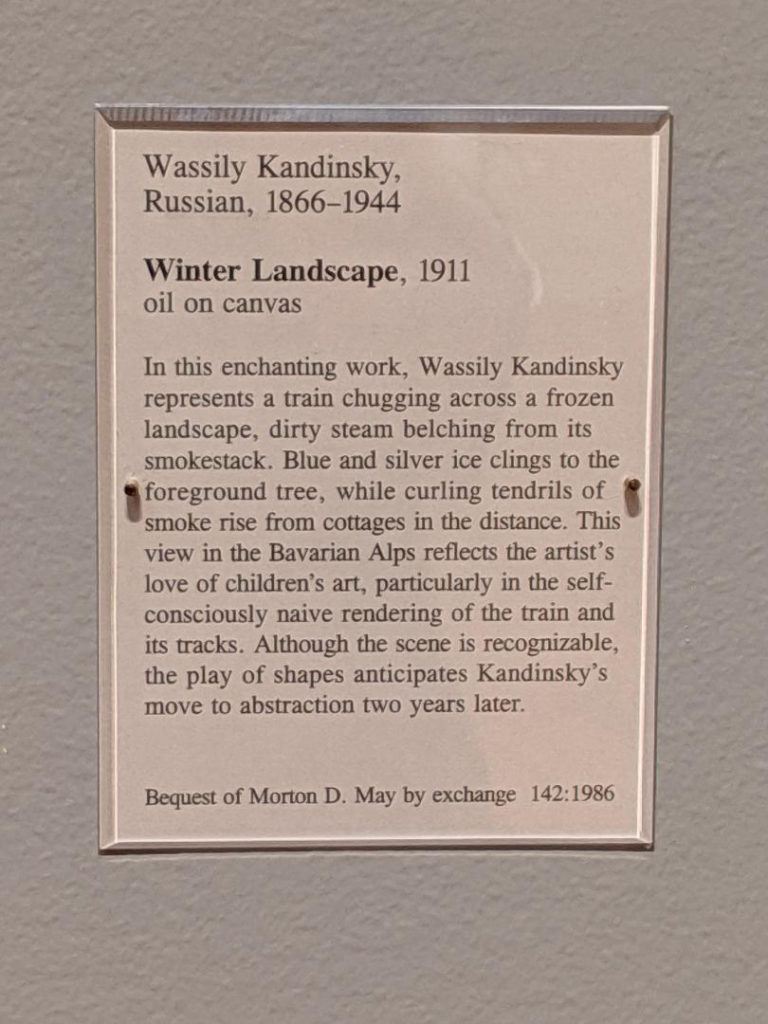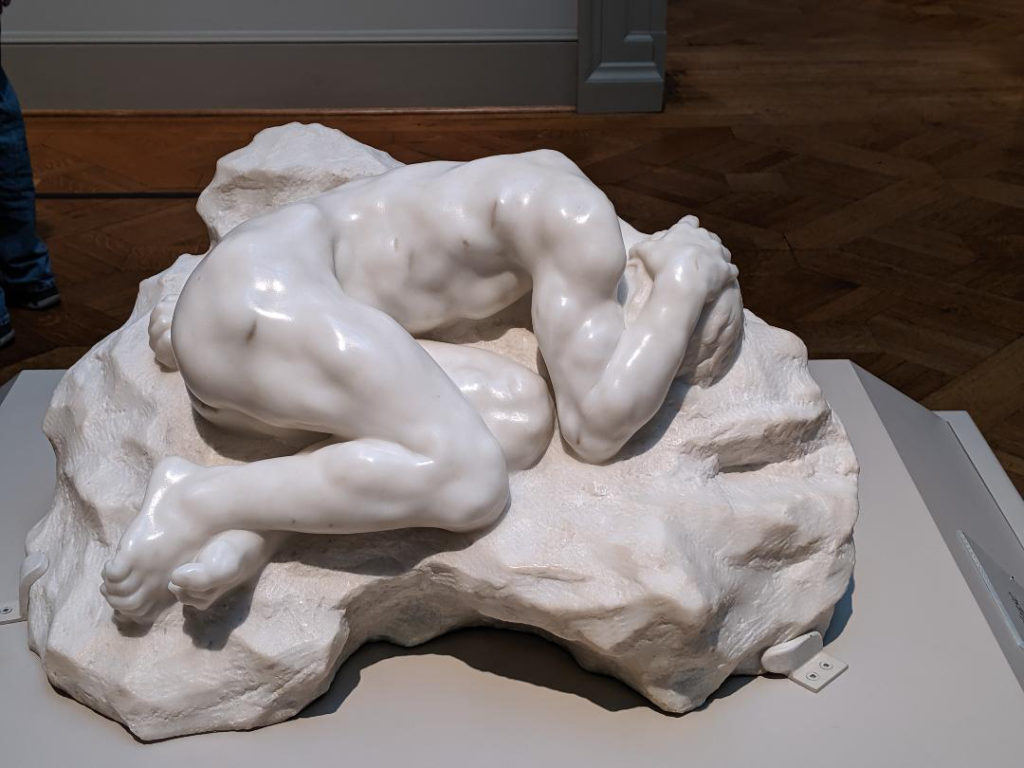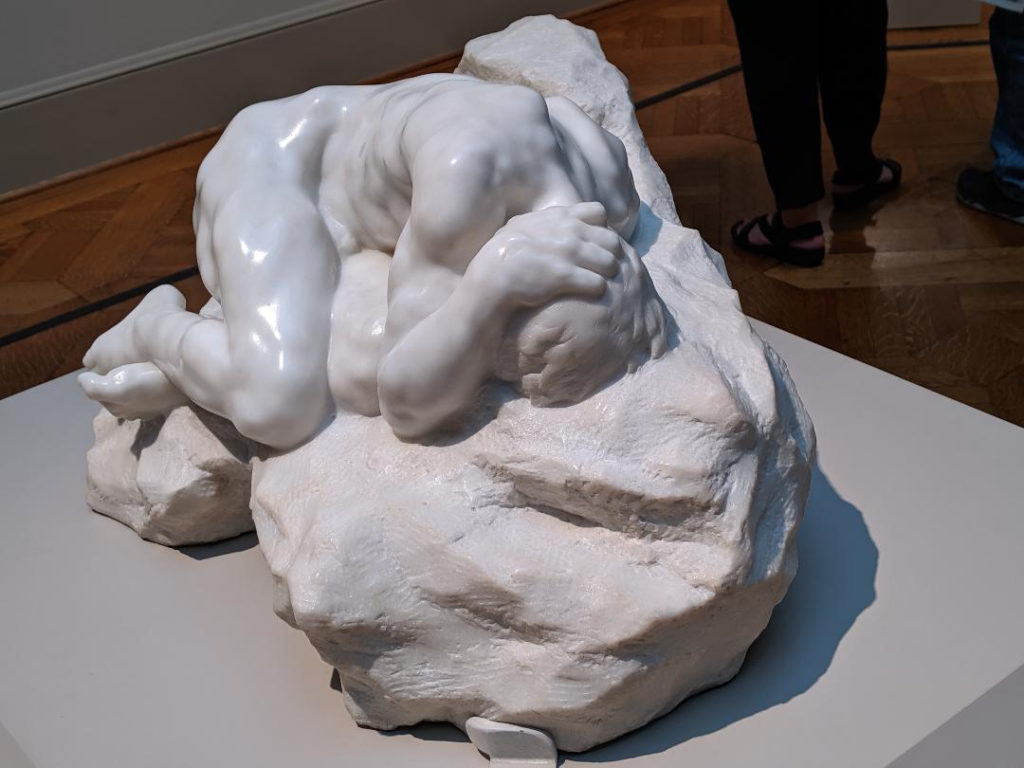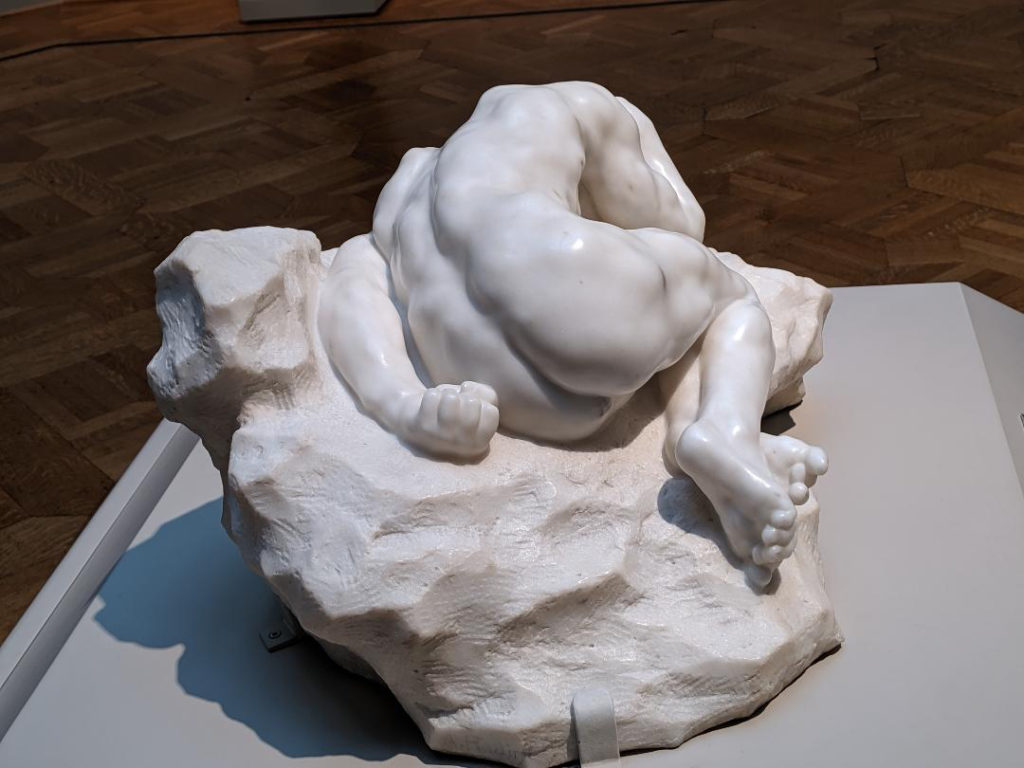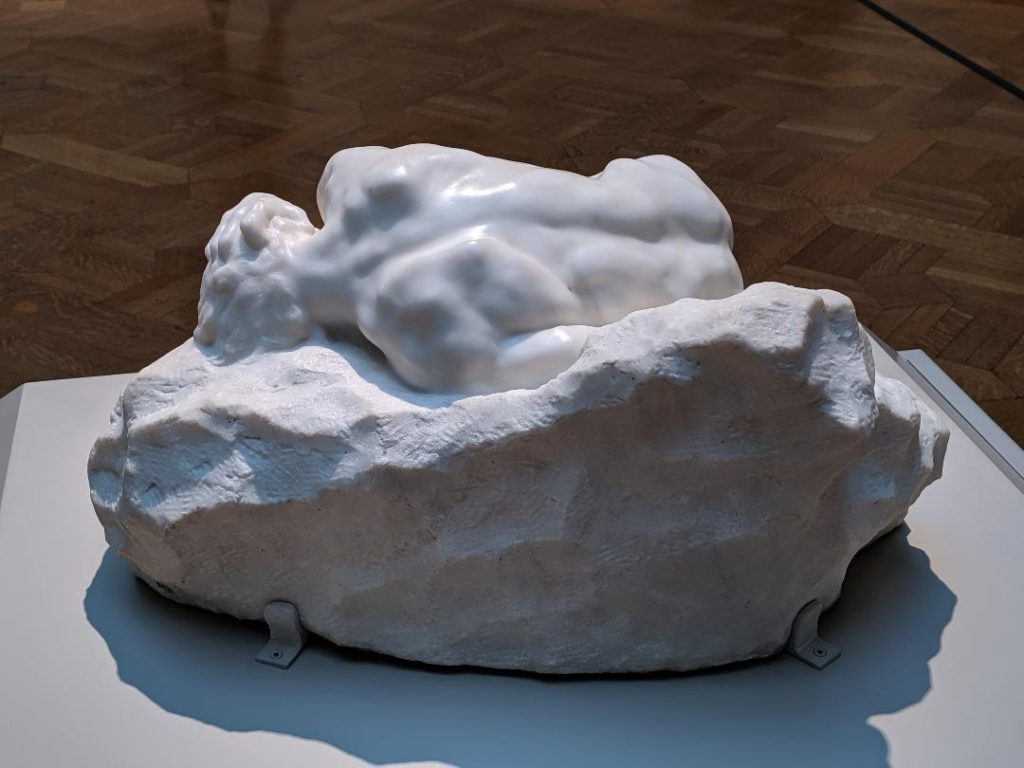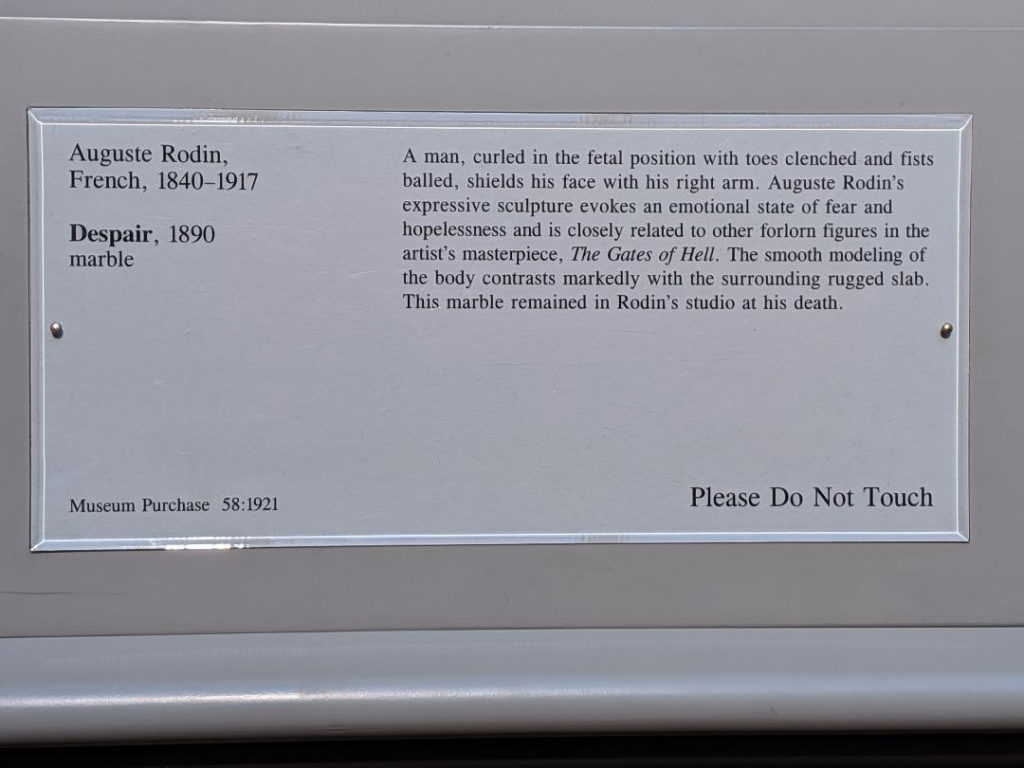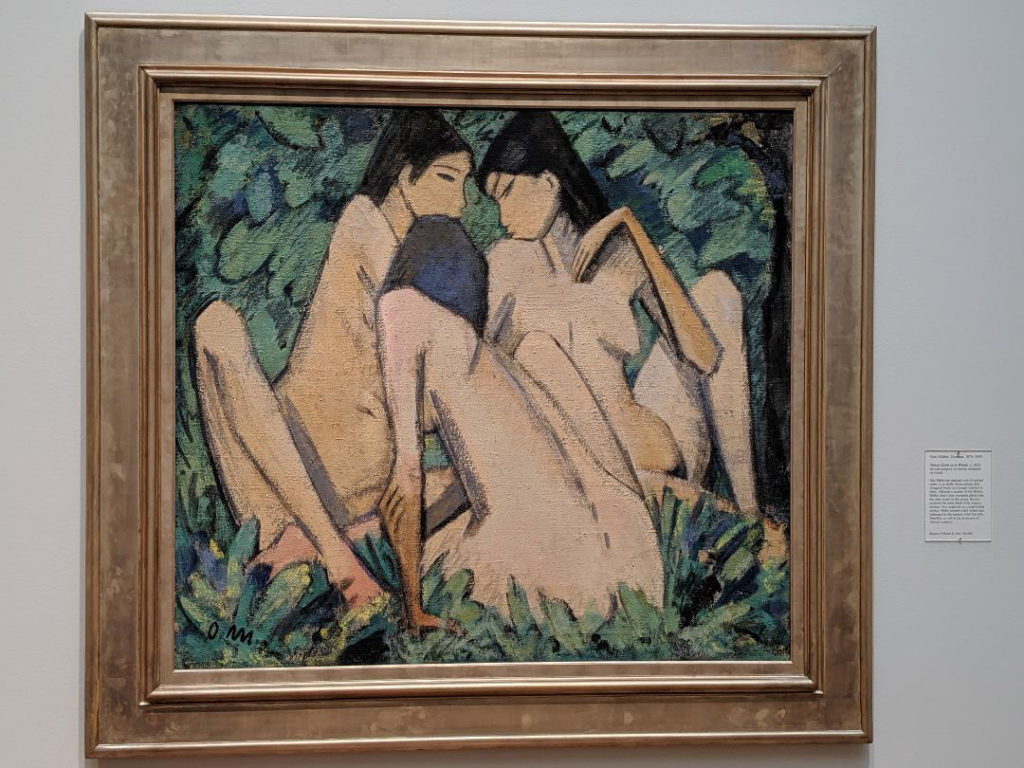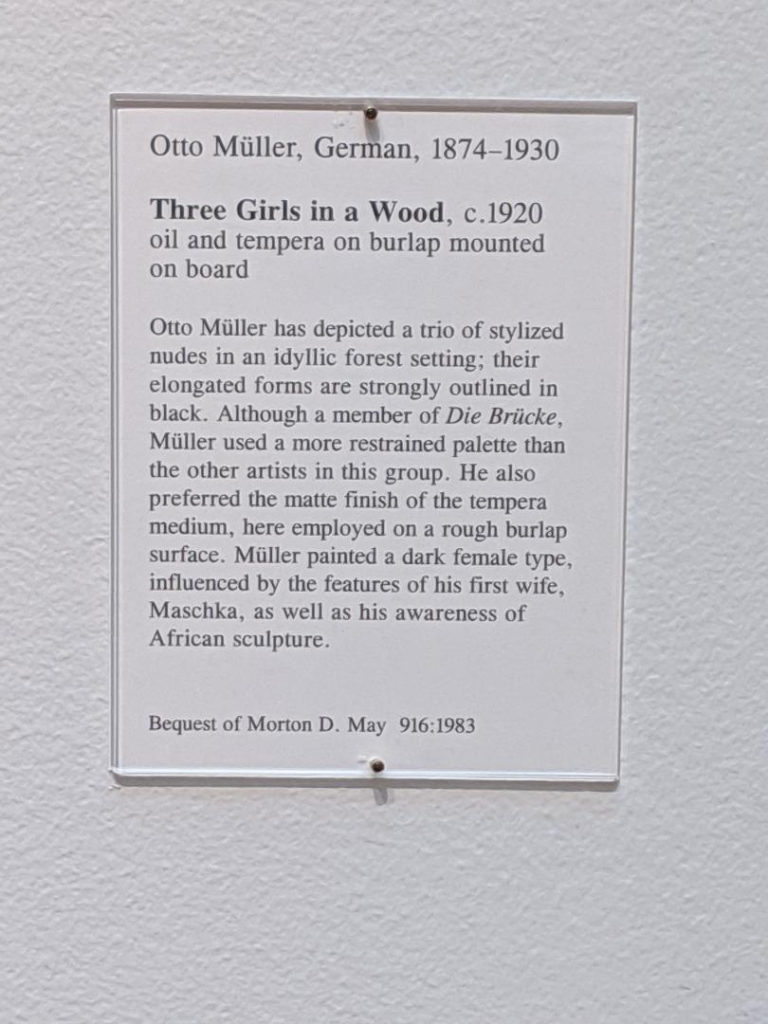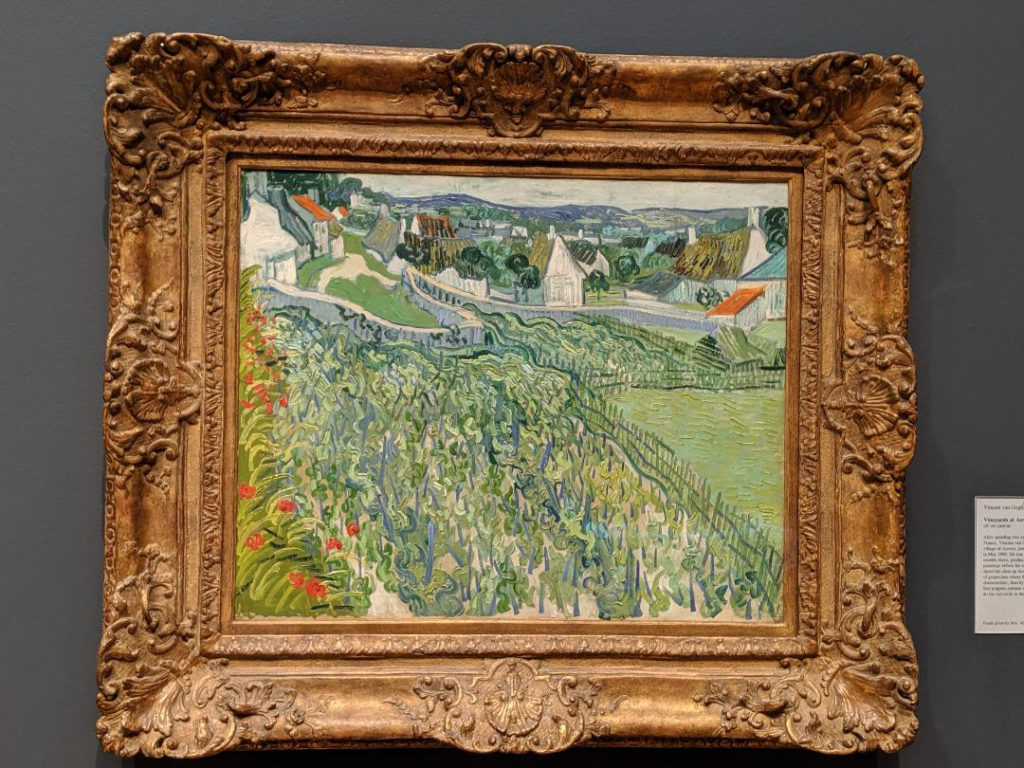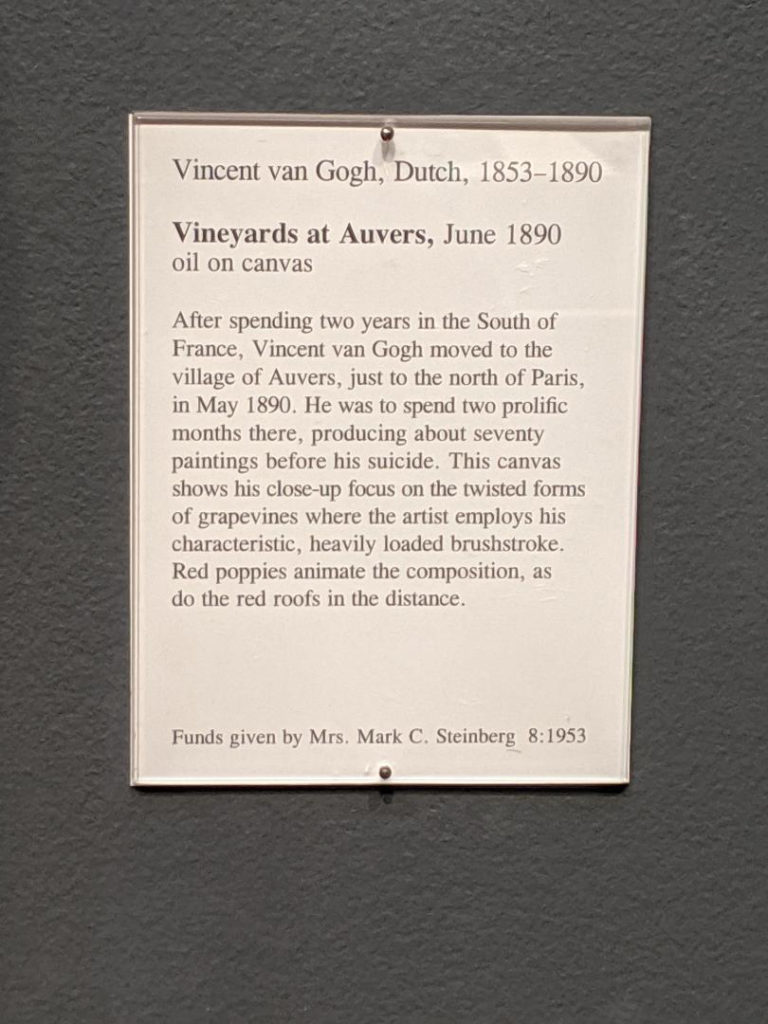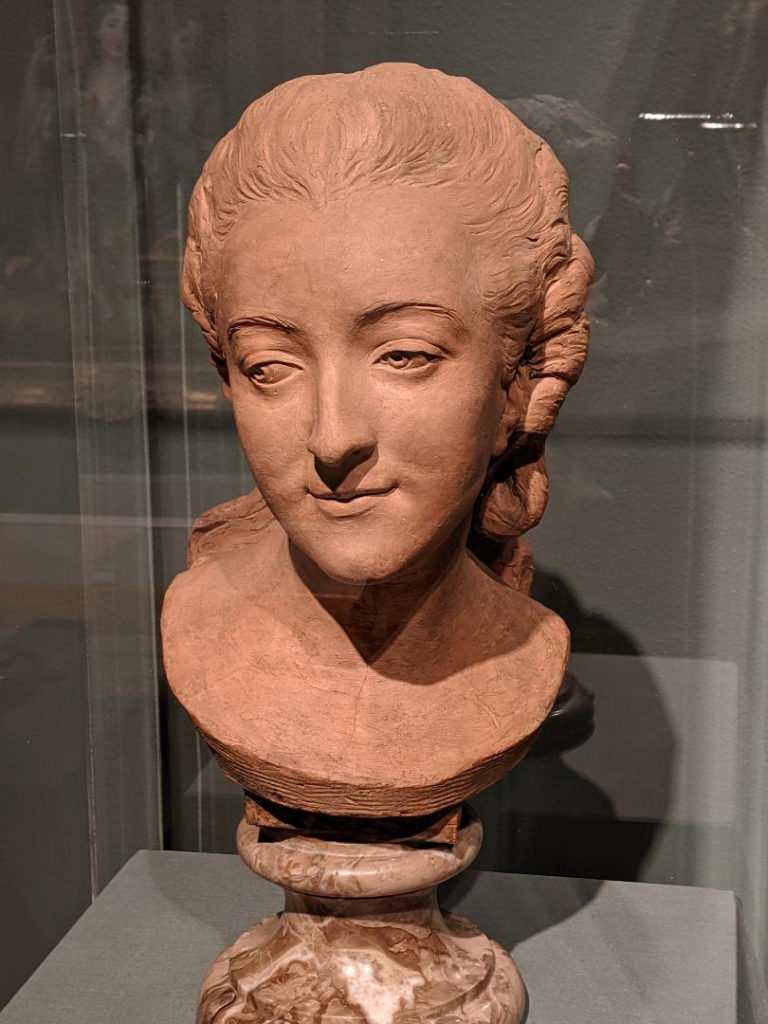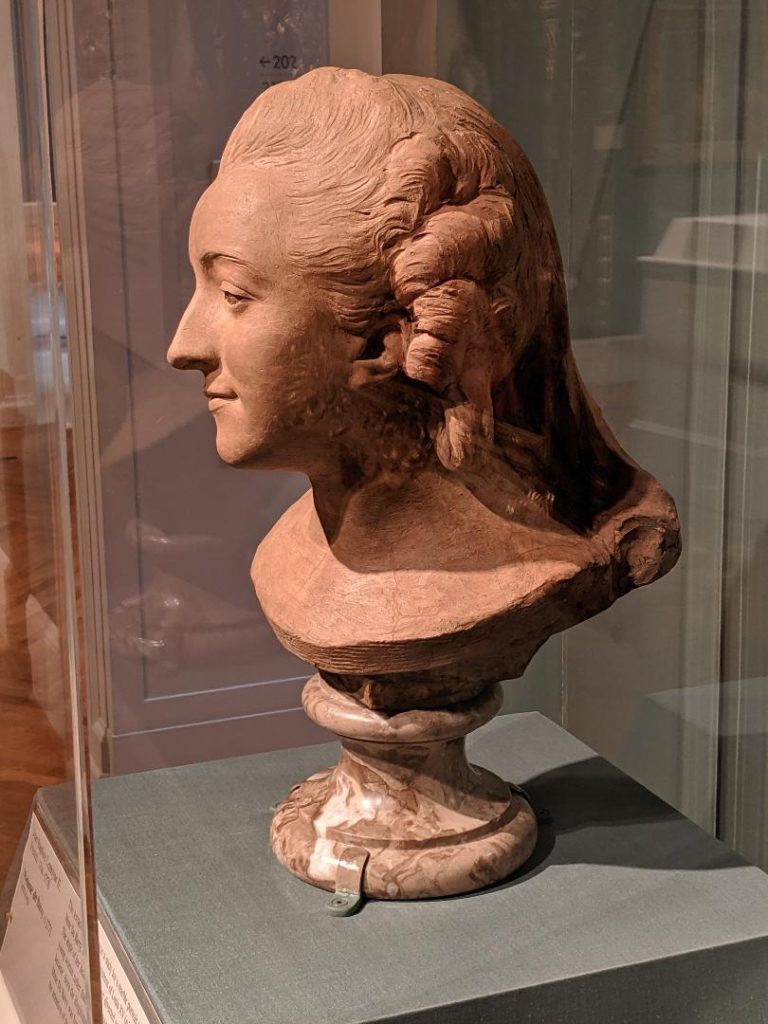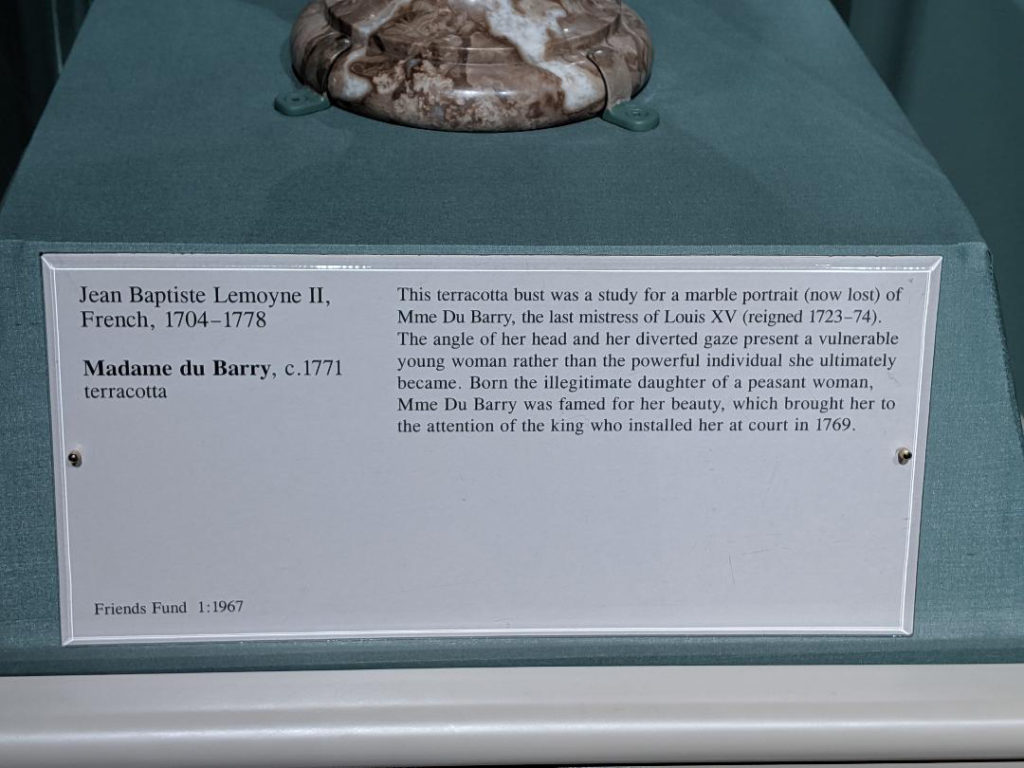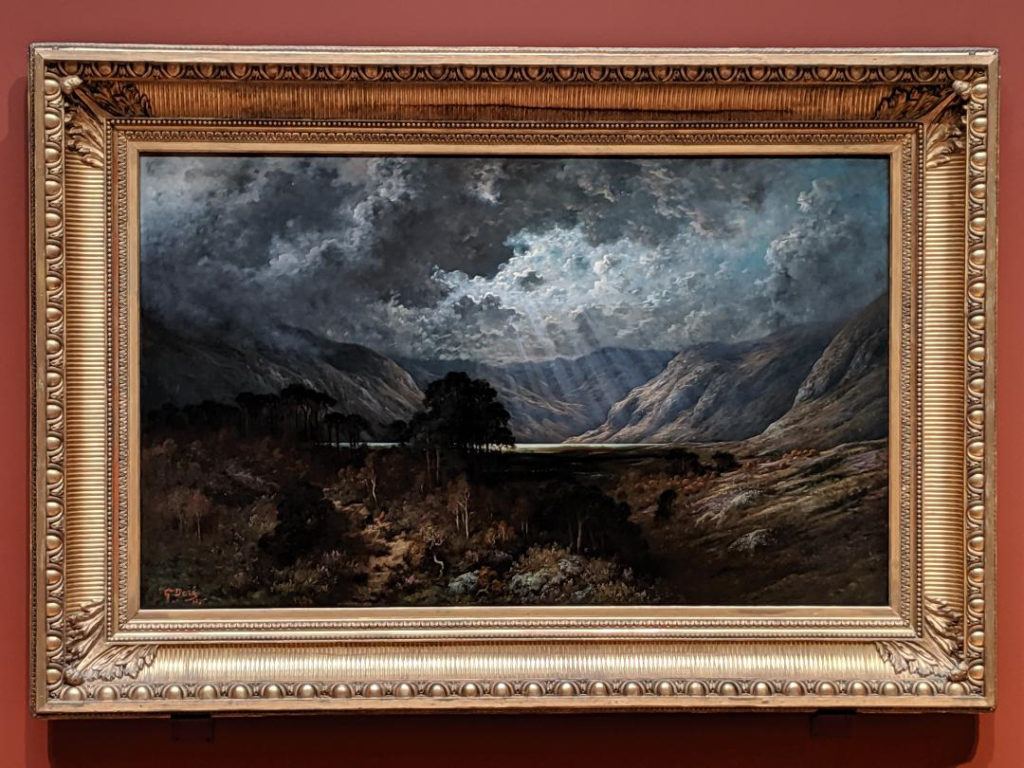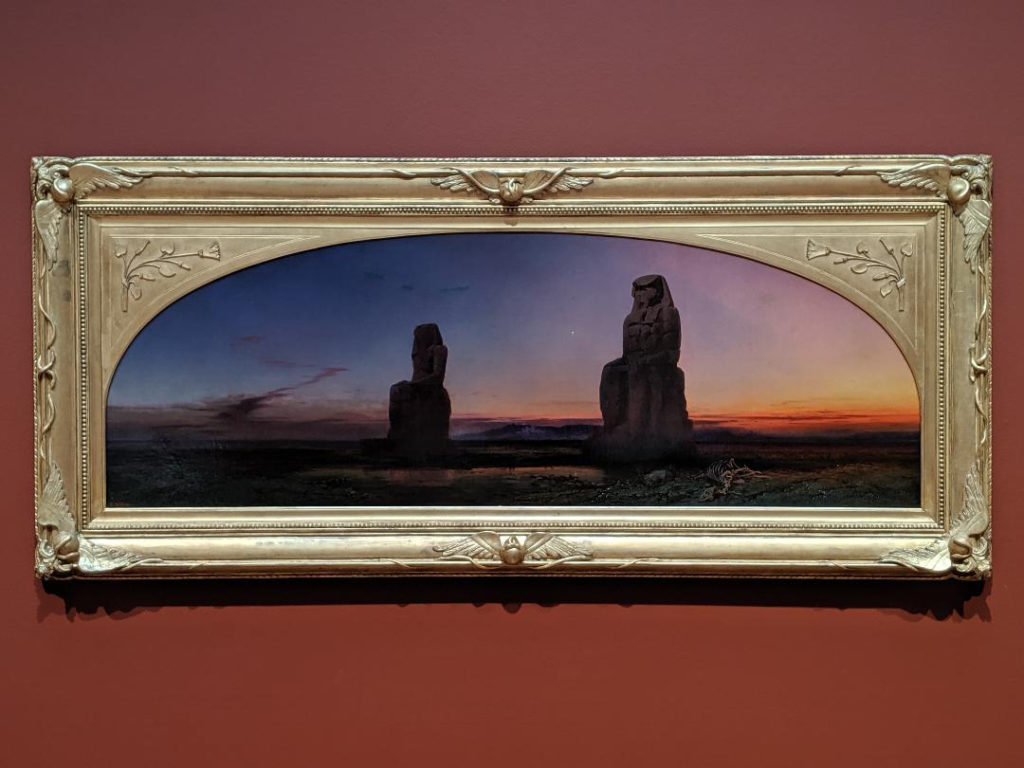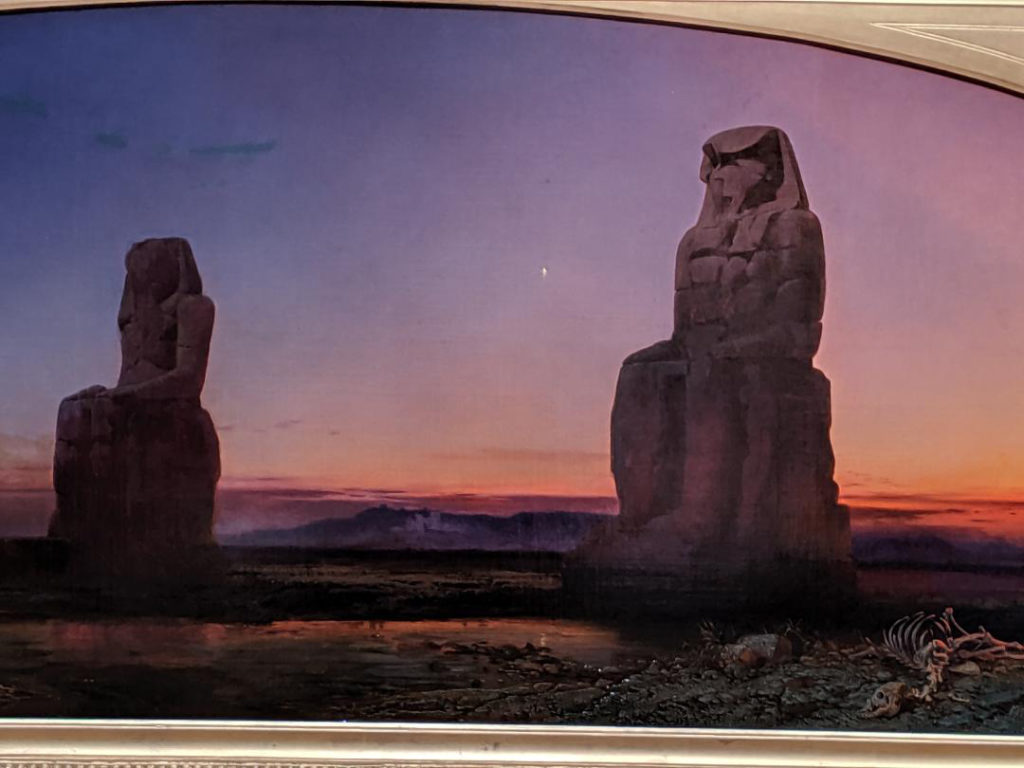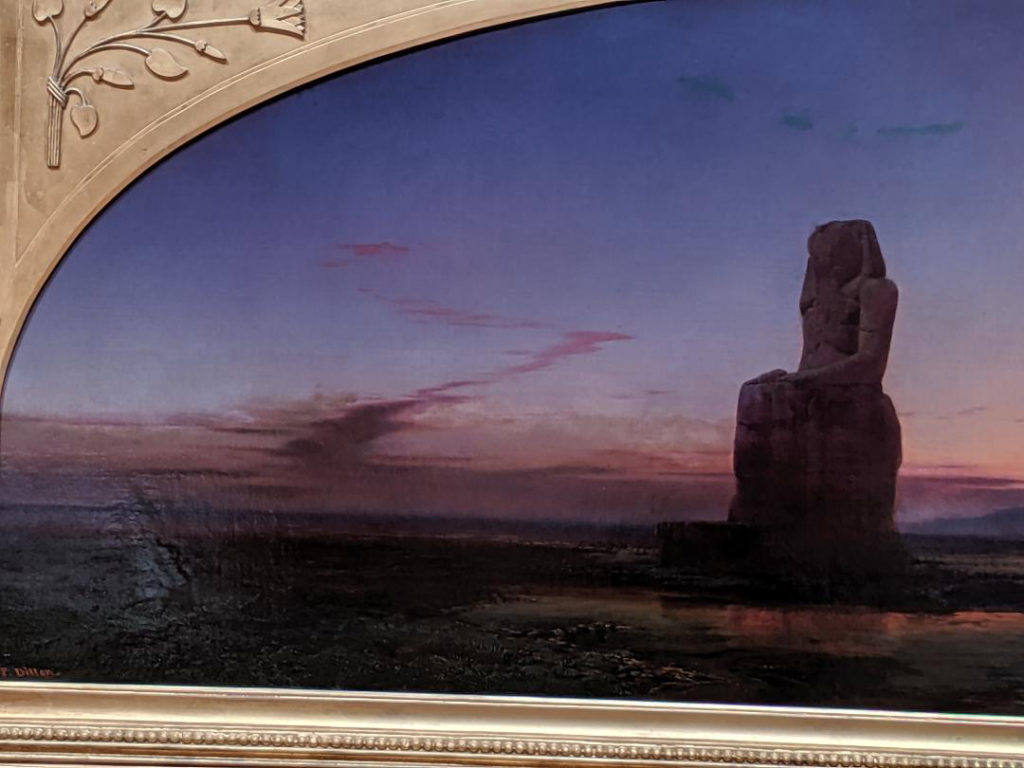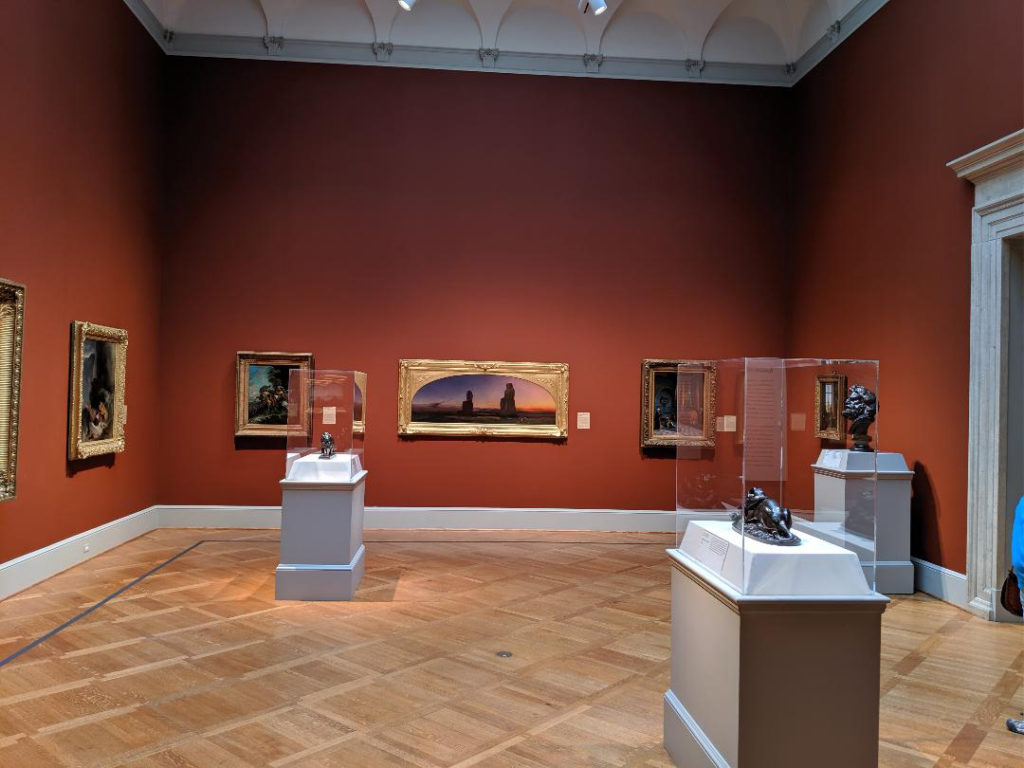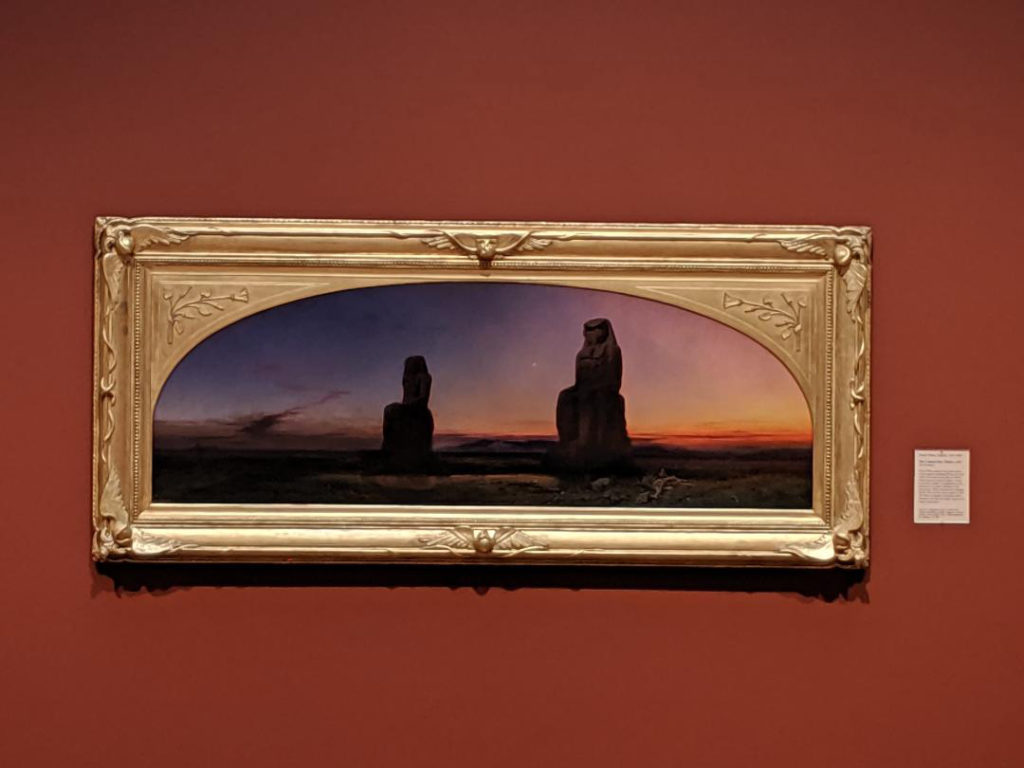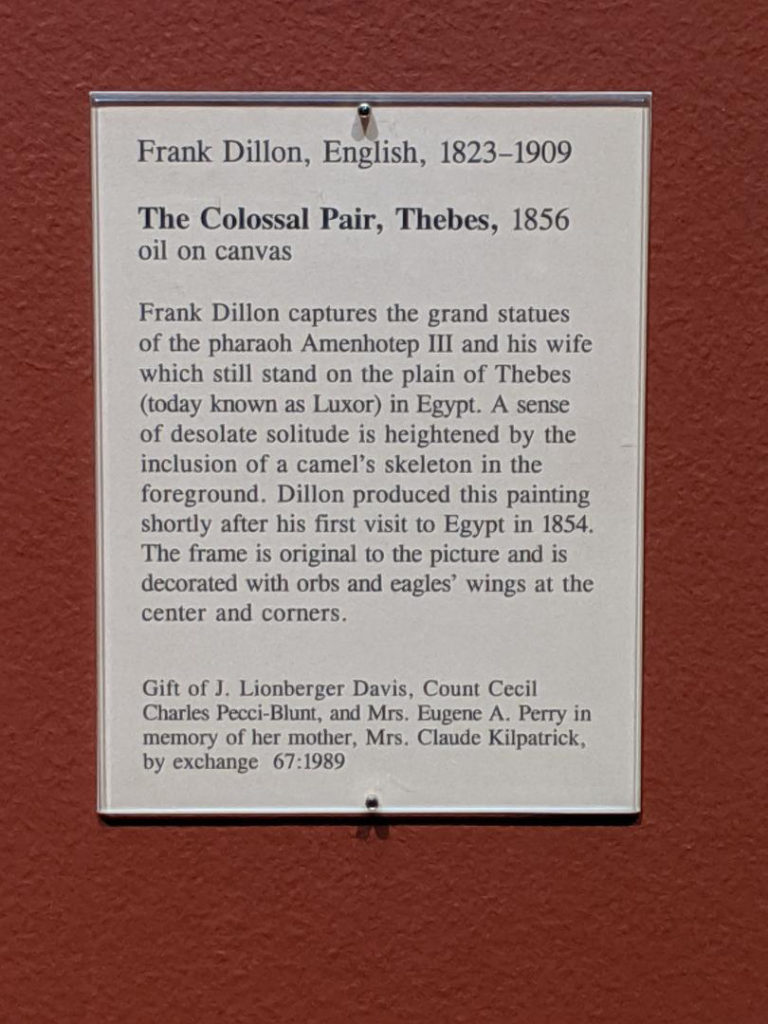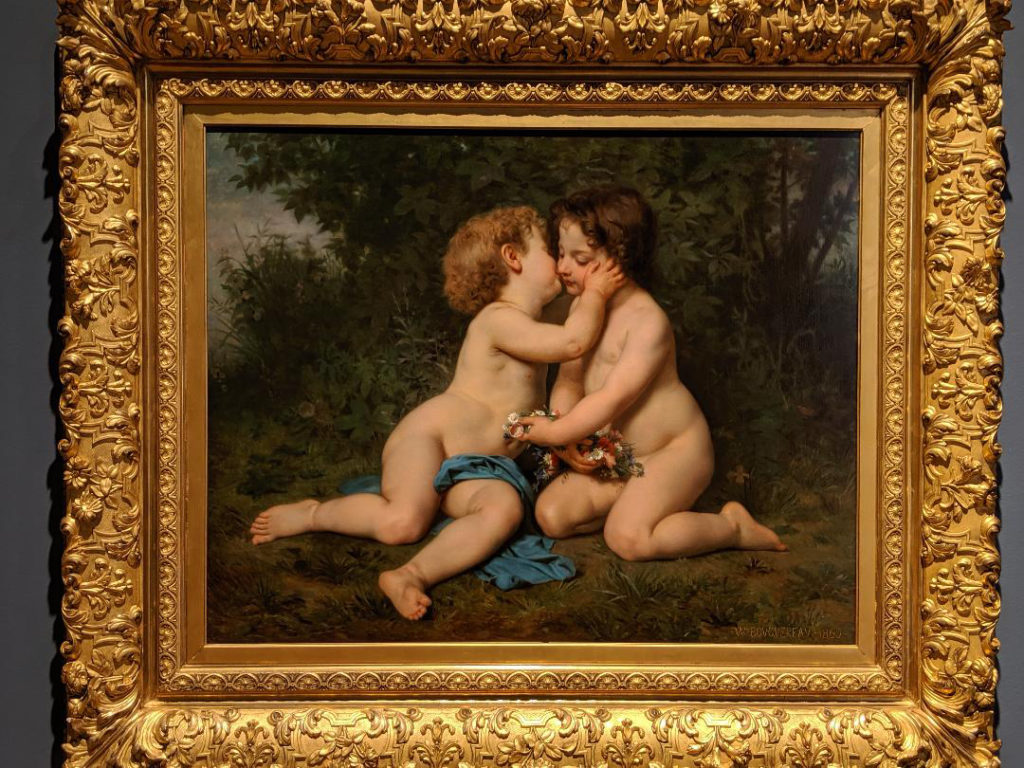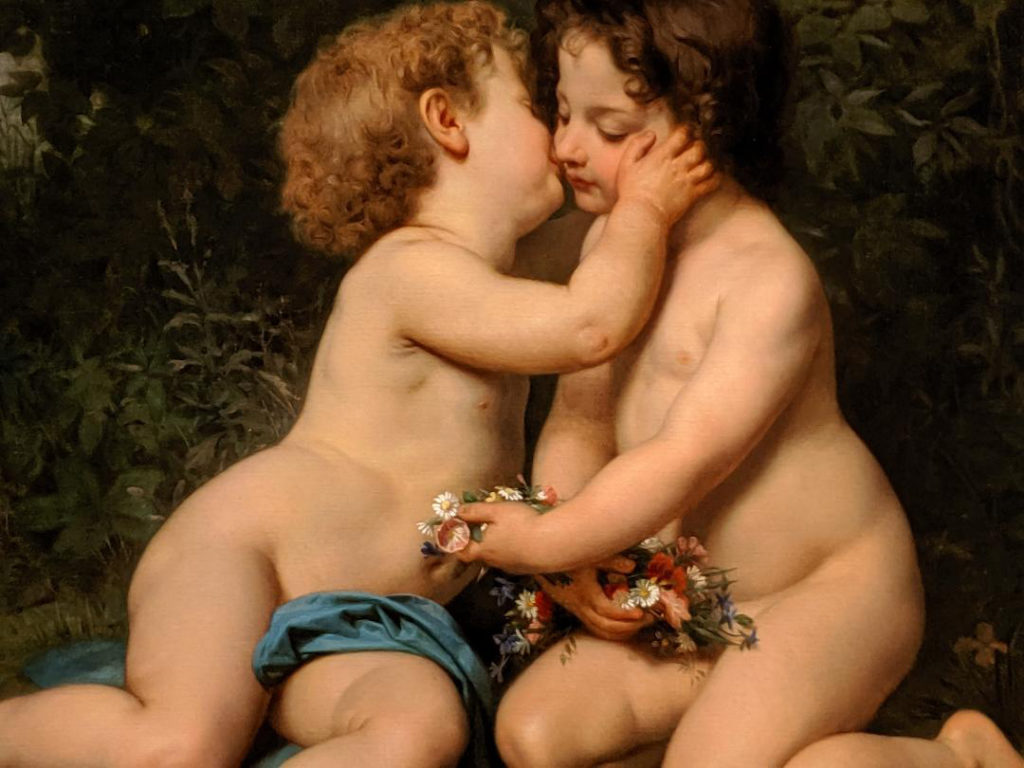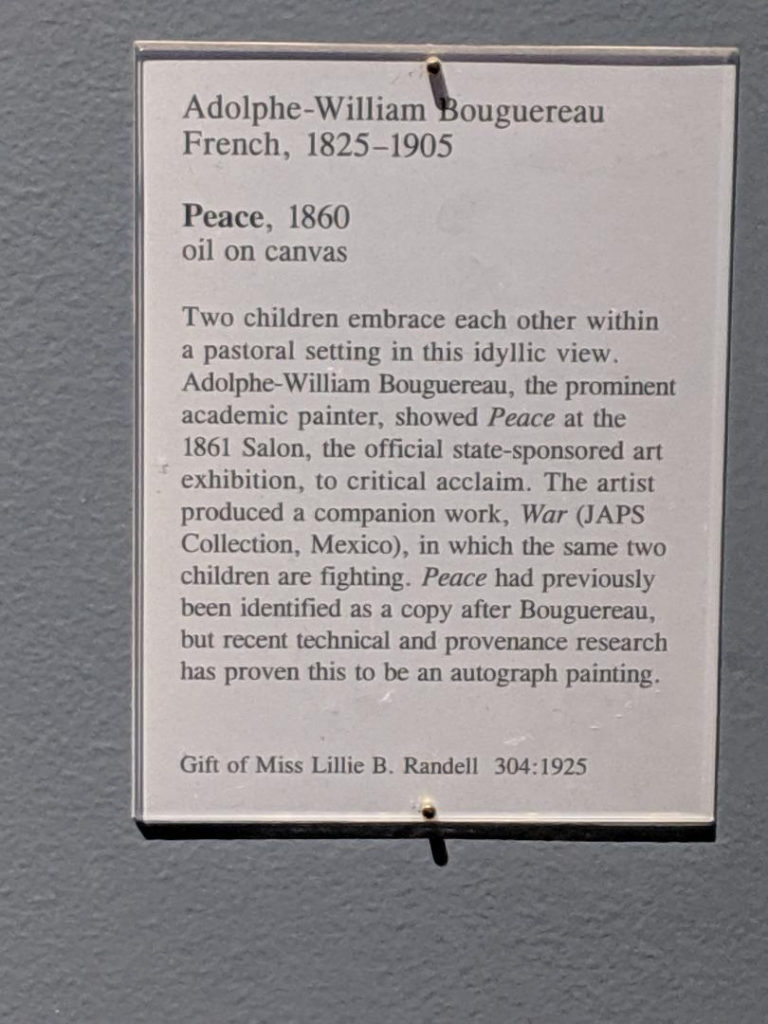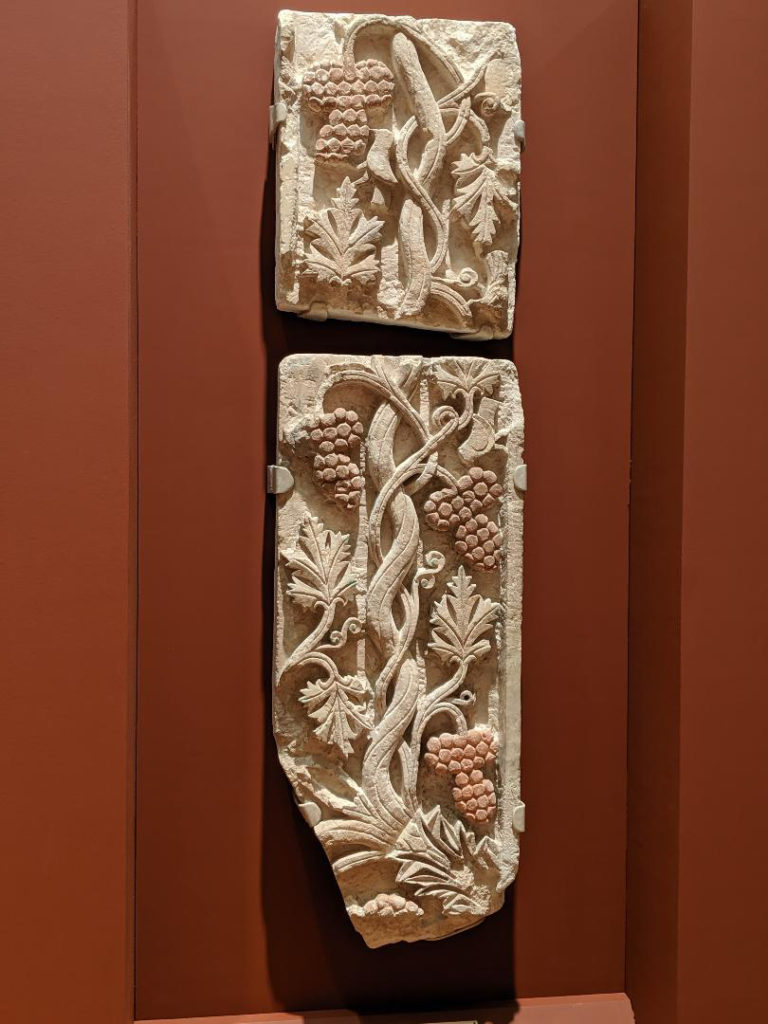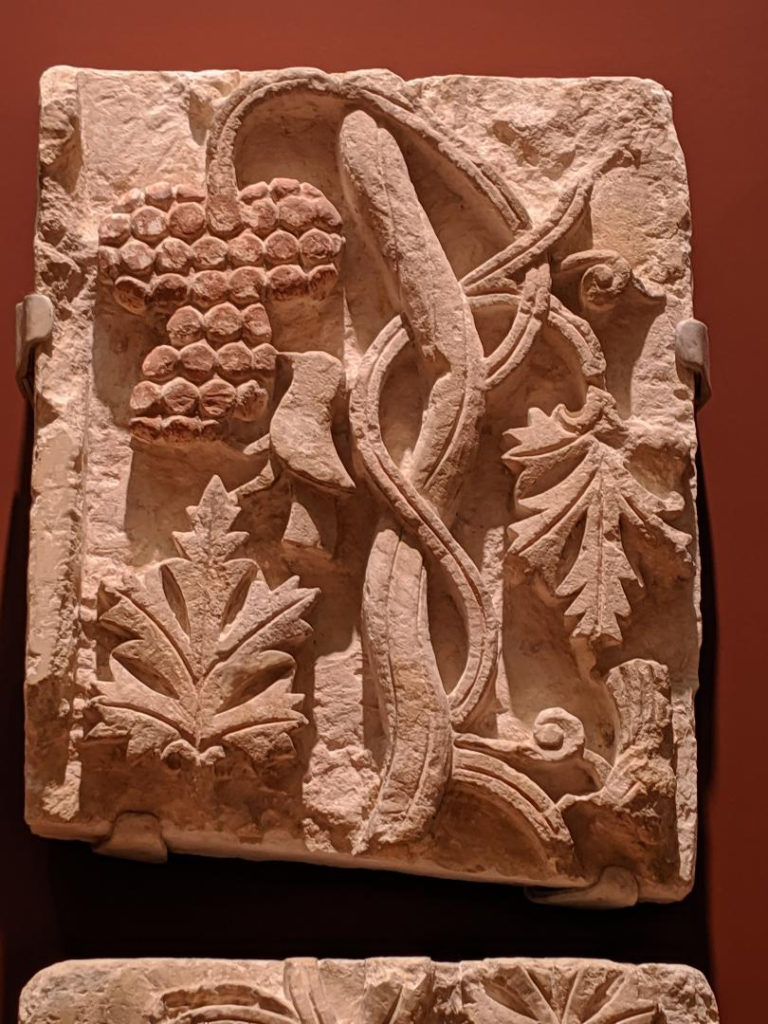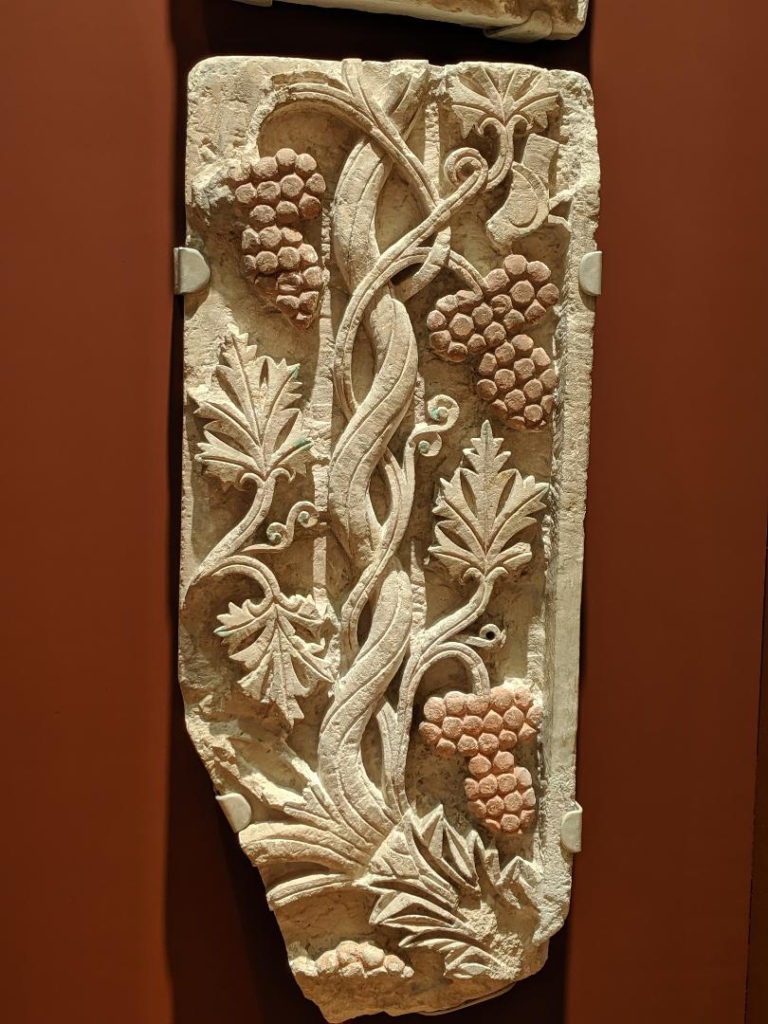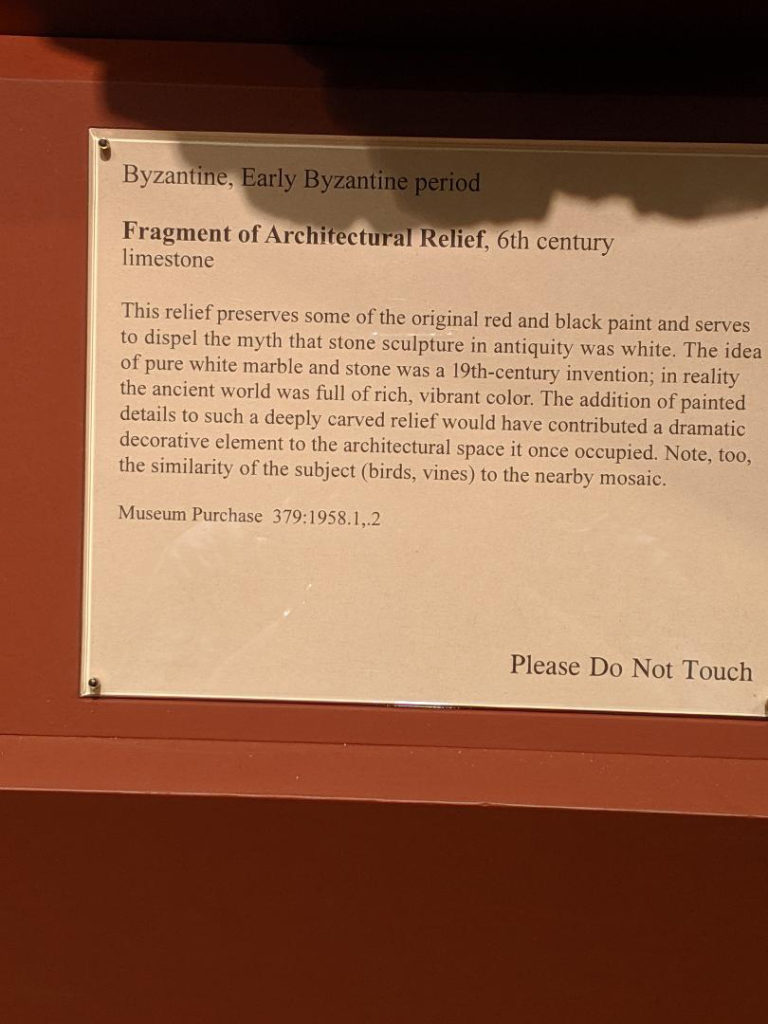Baroque is about being over the top, but only in the most elegant possible manner. There is no way on earth that you’re going to be playing patty fingers in the holy water with this font, and that’s the point: elegance to the point of misery. Beauty and majesty to the point that you behave yourself or so help you…
Saturday
This is another one of the paintings that I like to make a special visit to every time I’m in the museum. I enjoy the balance of colors, the simple childishness of the work, and how it makes me feel. I smile every time I see it, and that is a rare feeling in my life, so I will take it for all it is worth.
Friday
This piece is painfully evocative; it hits you like a swift kick to the gut. You know immediately what it is meant to portray and why. You know why you are meant to feel the way you do when you look at it. There is no wiggle room for interpretation. And yet, in the harshness, there is a delicate beauty of form and composition, of balance… and in the darkness, a tiny glimmer of hope.
Thursday
Wednesday
Tuesday
When you think of the sheer number of things that were destroyed in the French Revolution, then the Napoleonic Wars, then the World Wars, the fact that this not only survived, but made it out of France intact is a miracle. That it is preserved and in a public collection to be admired and appreciated for its beauty and its historical significance is also a miracle.
Monday
Sunday
This is one of those paintings that you just have to experience in person. No mere photograph is ever going to do it justice. You turn the corner from a room full of 18th century religious art and find yourself looking through a doorway with the long view that I’ve presented one of the photos above of this absolutely magnificent piece of stunning beauty. I was dumbfounded the first time I saw it, and it always makes me giddily happy to see it when I turn that corner. It isn’t a particularly overwhelming subject (in fact, if you asked most art historians, they would poo-poo it and roll their eyes at it as a bit of play-acting attempting art), nor a particularly effective execution of the subject itself (if you look closely in the detail shots, you can see that the statues are rendered rather poorly, and the bones in the sand are out of proportion, etc.), however, the overall effect is stunning. When the sun is shining and the light comes in just so from the outer galleries, it causes the frame to catch the light, which illuminates the sunset even more, giving it almost an ethereal glow.
Good thing I didn’t go to school for this shit, right? I just make it up as I go along!
Saturday
So here’s where I start to turn on the nerd a little bit… This painting, while definitely being high Victorian (as evidenced by the cluttery nature background and the ‘false modesty’ drape for the boy while leaving the girl nude aside from the flowers which are an allegorical reference in and of themselves), is also a masterclass in emulating high Renaissance portraiture ideals, 18th century framing and pastoral design, and 17th century color palettes. And that, my friends, was a run-on sentence of epic proportions.
I love this work because it shows a striking balance of color, composition, and simplicity despite being incredibly complex stylistically.
Friday
Symbolism has been all-powerful in religion since, well, forever. It’s how you communicate concepts with your followers without having to have a written word, per se. So, the vine and the grapes were very much an early Christian symbol that transcended much of Byzantine art, architecture, and culture. In this case, they survived through the centuries very well and afford us much delight to the present day.
